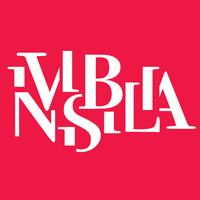Hi,
I have a question or two for all our mental health professionals at Treeleaf.
I was listening to an episode of a new science podcast on the subject of "Dark Thoughts" (be warned, if others will want to listen and are sensitive, that some of descriptions during the episode are very very dark and violent).
During the first 30 minutes of the program, they discuss 3 schools of therapy:
-1- Analysis seeking for the meaning of thoughts, usually Freudian. Thoughts have meaning, often hidden in the subconscious.
-2- Dr. Beck's Cognitive Behavioral Therapy "don't take one's 'automatic negative thoughts' seriously, challenge them and don't buy in", which has come to largely replace analysis for most therapists.
-3- "Third Wave" or "Mindfulness" Therapy which, without seeking to contradict thoughts as in CBT, just "lets them go without engaging" in meditation, not buying in. This kind of therapy is experiencing a boom.
I am wondering how you feel about all this.
Also, it is my impression that 3 (and aspects of 2 too) have the flavor of Shikantaza. There are differences too from Shikantaza, which emphasizes much more. Based on your experience in our Community and with Shikantaza, how do you find Shikantaza to be similar or different from 2 and 3?
It would be very helpful to hear from all our professionals.
Gassho, Jundo
PS - Do you agree that the therapist allowing these patients to hold a knife to his throat is perhaps taking some chances?
I have a question or two for all our mental health professionals at Treeleaf.

I was listening to an episode of a new science podcast on the subject of "Dark Thoughts" (be warned, if others will want to listen and are sensitive, that some of descriptions during the episode are very very dark and violent).
During the first 30 minutes of the program, they discuss 3 schools of therapy:
-1- Analysis seeking for the meaning of thoughts, usually Freudian. Thoughts have meaning, often hidden in the subconscious.
-2- Dr. Beck's Cognitive Behavioral Therapy "don't take one's 'automatic negative thoughts' seriously, challenge them and don't buy in", which has come to largely replace analysis for most therapists.
-3- "Third Wave" or "Mindfulness" Therapy which, without seeking to contradict thoughts as in CBT, just "lets them go without engaging" in meditation, not buying in. This kind of therapy is experiencing a boom.
I am wondering how you feel about all this.
Also, it is my impression that 3 (and aspects of 2 too) have the flavor of Shikantaza. There are differences too from Shikantaza, which emphasizes much more. Based on your experience in our Community and with Shikantaza, how do you find Shikantaza to be similar or different from 2 and 3?
It would be very helpful to hear from all our professionals.
Gassho, Jundo
PS - Do you agree that the therapist allowing these patients to hold a knife to his throat is perhaps taking some chances?




Comment